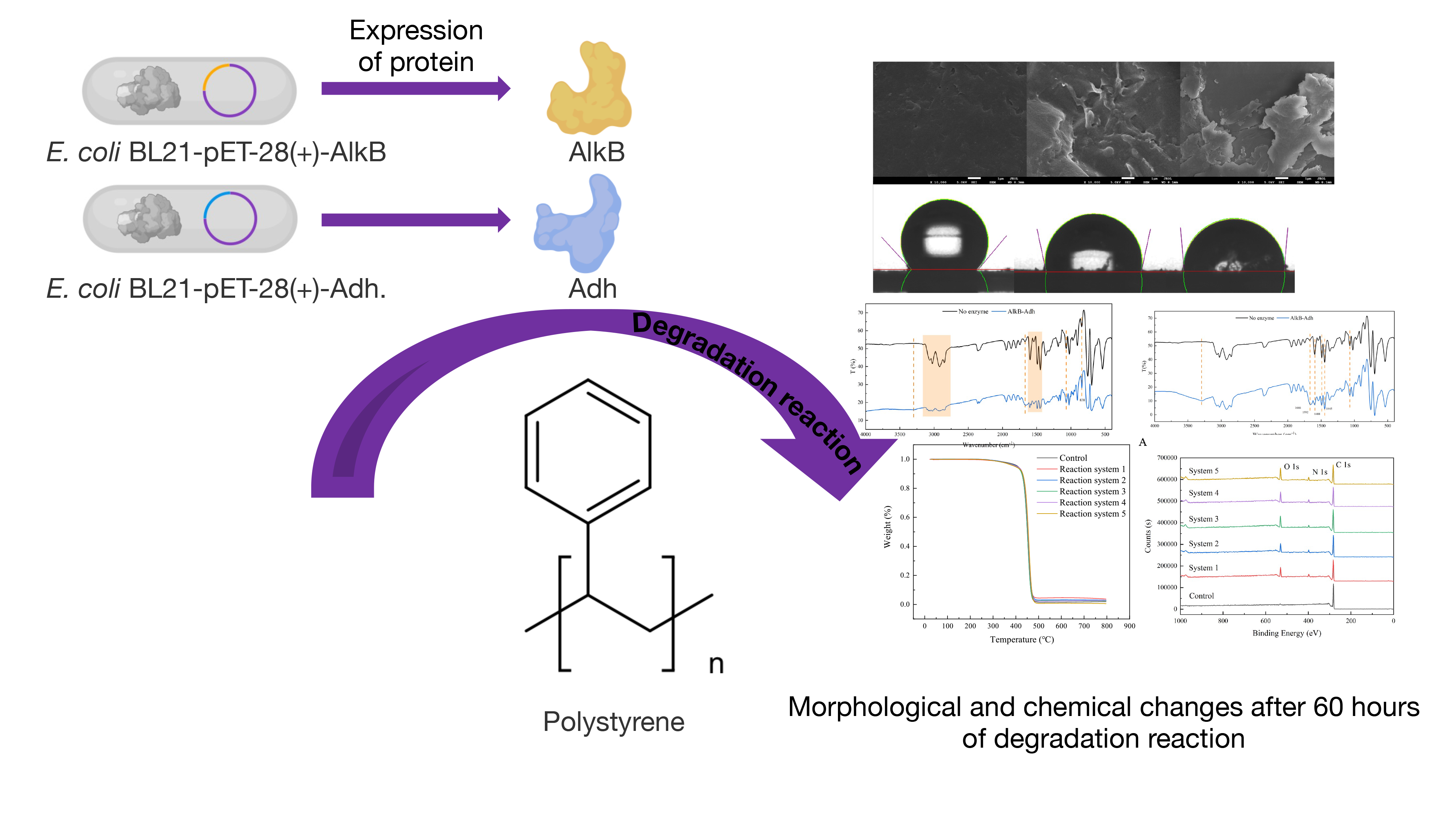
The consumption of plastic products has led to the generation of large amounts of plastic waste, which is persistent and difficult to degrade. Polystyrene (PS) is one of the six most important plastics in the world and is difficult to degrade in the environment owing to its high stability. To investigate PS degradation by biological enzymes, two oxidoreductases, alkane hydroxylase (AlkB) and alcohol dehydrogenase (Adh), were selected from the bacterial strain Acinetobacter johnsonii JUN01, which has been proven to be capable of degrading PS. Genetically engineered bacteria capable of expressing AlkB and Adh were constructed using genetic engineering technology, and the degradation activities of AlkB monoenzyme, Adh monoenzyme, and AlkB–Adh composite enzyme were investigated. Thermal field emission scanning electron microscopy (SEM) and water contact angle (WCA) measurements demonstrated that the investigated enzymes transformed PS from hydrophobic to hydrophilic. Fourier transform infrared (FTIR) results showed that after enzymatic hydrolysis, the number of hydroxyl groups (–OH) increased, the number of C=C and C=O bonds increased, and the structure of benzene ring was disrupted by degradation using AlkB monoenzyme and AlkB–Adh composite enzyme. X-ray photoelectron spectroscopy (XPS) showed that the characteristic C–C bonds of PS decreased, and the number of C–O bonds and C=O bonds increased. The molecular weight of PS changed after digestion, as determined by high-temperature gel chromatography (GPC). Thermogravimetric analysis (TGA) was used to demonstrate a decrease in the thermal stability of PS after digestion. These results showed that the AlkB monoenzyme, Adh monoenzyme, and AlkB–Adh composite enzyme all had PS degradation activity, demonstrating that the idea of using a composite enzyme to degrade PS was feasible. In addition, Adh exhibited degradation activity in two different coenzyme reaction systems. Therefore, these results provide a theoretical basis and data support for the future degradation of PS by bioenzymes.
Keywords: Plastic degrading enzymes; Microplastics; Biodegradation
Total file downloads: 70